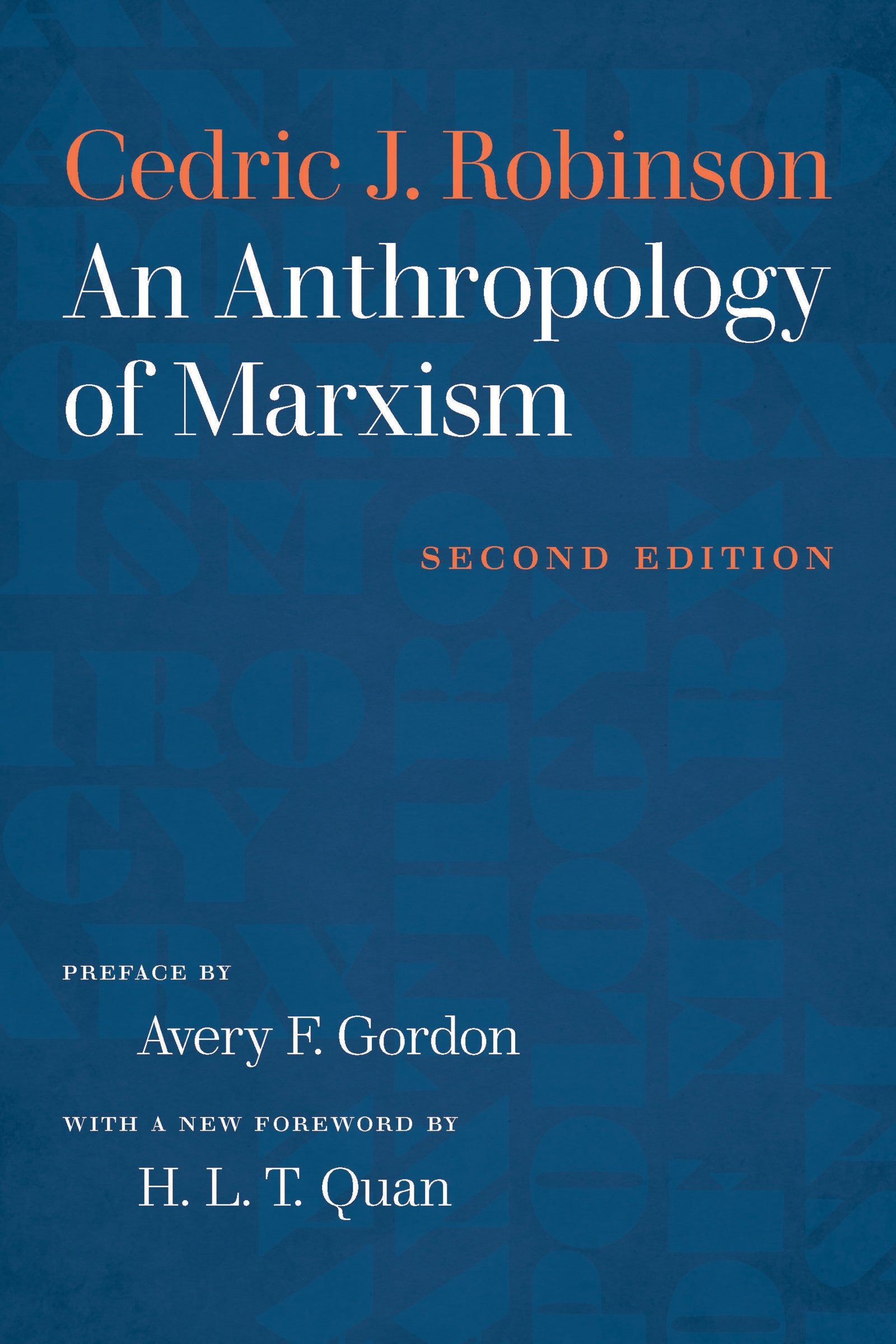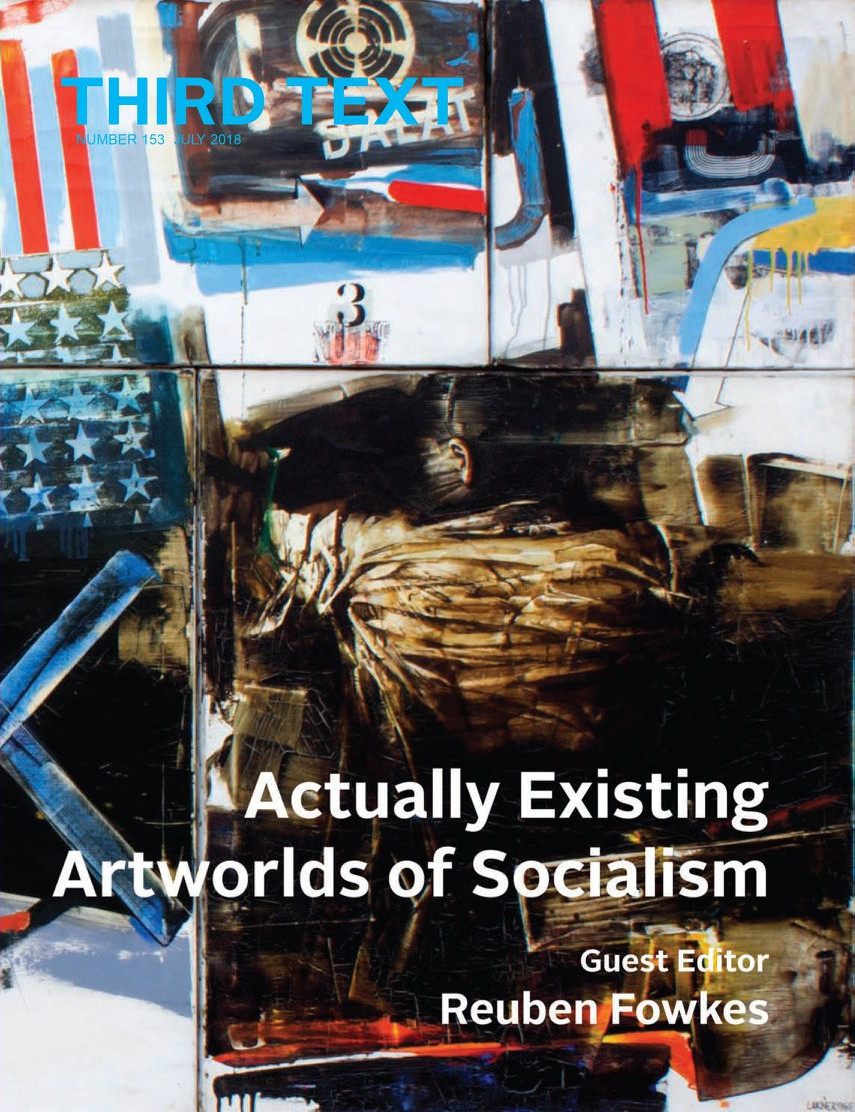Cedric J. Robinson: An Anthropology of Marxism (2001–)
Filed under book | Tags: · black people, capitalism, communalism, communism, community, economics, marxism, materialism, philosophy, race, socialism, society

“An Anthropology of Marxism offers Cedric Robinson’s analysis of the history of communalism that has been claimed by Marx and Marxists. Suggesting that the socialist ideal was embedded both in Western and non-Western civilizations and cultures long before the opening of the modern era and did not begin with or depend on the existence of capitalism, Robinson interrogates the social, cultural, institutional, and historical materials that were the seedbeds for communal modes of living and reimagining society. Ultimately, it pushes back against Marx’s vision of a better society as rooted in a Eurocentric society, and cut off from its own precursors. Accompanied by a new foreword by H.L.T. Quan and a preface by Avery Gordon, this invaluable text reimagines the communal ideal from a broader perspective that transcends modernity, industrialization, and capitalism.”
Preface by Avery F. Gordon
Publisher Ashgate, 2001
ISBN 1840147008
xxii+169 pages
Second edition
New foreword by H. L. T. Quan
Publisher University of North Carolina Press, Chapel Hill, NC, 2019
ISBN 9781469649917, 1469649918
xxix+171 pages
Commentary: Avery F. Gordon (Race & Class, 2005).
Review: Rose Deller (LSE Rev of Books, 2019).
Publisher (2nd ed.)
WorldCat (2nd ed.)
PDF (1st ed., 2001, 9 MB)
PDF (2nd ed., 2019, 2 MB)
See also Robinson’s Black Marxism: The Making of the Black Radical Tradition (1983).
Comment (0)Third Text, 153: Actually Existing Artworlds of Socialism (2018)
Filed under journal | Tags: · art history, central europe, communism, east-central europe, eastern europe, new tendencies, photography, politics, socialism, southeastern europe

“The tensions between actual and ideal versions of socialism elucidated by East German theorist Rudolf Bahro in 1977 are taken as a starting point for reconsidering East European art from the radical effervescence of the 1960s to the post-utopian twilight of the late 1970s. The special issue is premised on the concept that artistic life in Eastern Europe was profoundly shaped by the structures, conventions and workings of the overarching system, with artists and critics compelled to negotiate its productive contradictions. It examines the quotidian functioning of art scenes across the region that entailed the drawing up of tacit compromises and maintenance of calculated ambiguities in relations between party authorities and artists. Ultimately it was the latent and unrealised promise of actually existing socialism as much as its demonstrative failings that marked a crucial difference in the attitude of East European artists to the utopian reverberations of the era.”
With texts by Maja Fowkes & Reuben Fowkes, Tomáš Pospiszyl, Tomasz Załuski, Zsuzsa László, Daniel Grúň, Candice M Hamelin, Hana Buddeus, Alina Șerban, Raino Isto, Sonja Simonyi, Marko Ilić, and Armin Medosch.
Edited by Reuben Fowkes
Publisher Routledge, July 2018
ISSN 0952-8822
194 pages
PDF (40 MB)
Comment (0)Katalin Cseh-Varga, Adam Czirak (eds.): Performance Art in the Second Public Sphere: Event-based Art in Late Socialist Europe (2018)
Filed under book | Tags: · art history, censorship, communism, east-central europe, eastern europe, event, happening, mail art, nudity, performance, performance art, protest, public sphere, sexuality, socialism, southeastern europe, theatre, underground

“This is the first interdisciplinary analysis of performance art in East, Central and Southeast Europe under socialist rule. By investigating the specifics of event-based art forms in these regions, each chapter explores the particular, critical roles that this work assumed under censorial circumstances.
The artistic networks of Yugoslavia, Hungary, Latvia, Lithuania, Poland, Romania, East Germany and Czechoslovakia are discussed with a particular focus on the discourses that shaped artistic practice at the time, drawing on the methods of Performance Studies and Media Studies as well as more familiar reference points from art history and area studies.”
Publisher Routledge, New York & London, 2018
ISBN 9781138723276, 1138723274
xii+263 pages
Interview with editors (ARTMargins, 2014)
Comment (0)
